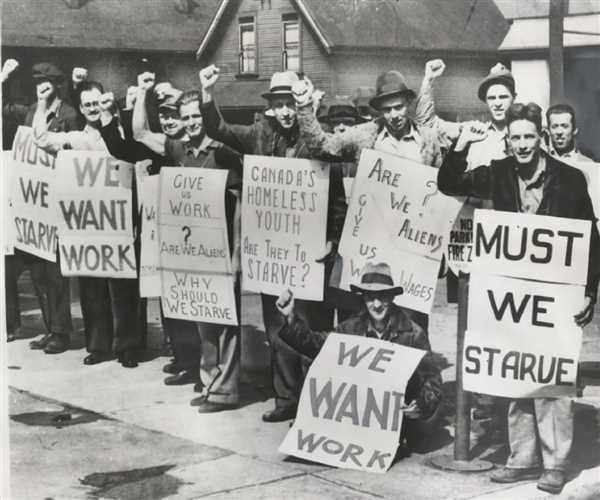During the Great Depression of the 1930s, unemployment and homelessness were major problems. Many people lost their jobs and their homes as a result of the economic downturn, and they had to find ways to survive. Laughter and entertainment were often used as a way to cope with the difficult circumstances of the time. People would go to movies, listen to the radio, or attend live performances as a way to escape their problems and find joy in their lives. In addition, many comedians and entertainers during this time incorporated themes related to the economic struggles of the time into their act as a way to connect with their audience and provide a sense of hope and levity.
While it may seem hard to imagine how laughter and entertainment could have been connected to such a difficult time, there were many ways in which people sought to find some form of joy and happiness during this difficult period.

- First, the era of the Great Depression saw a rise in vaudeville and burlesque shows. These shows provided a much-needed escape from the everyday worries and provided entertainment for those who had few other options. Many of the performers were unemployed or homeless and the shows provided them with a chance to make a living. They were also popular with audiences, and many theaters began to feature these shows to ensure that people had some form of entertainment to look forward to.
- Second, during the Great Depression, the movie industry also began to thrive. Movies provided an escape from the harsh reality of everyday life and provided people with a few hours of entertainment. Movie star roles were often given to unemployed actors who were struggling to make ends meet. As a result, not only were unemployed people able to make a living, but they were also able to find some form of joy and laughter in the movies.
- Finally, the 1930s also saw the beginning of radio comedy. Radio shows provided an outlet for people to laugh and escape the struggles of everyday life. Comedians such as Jack Benny and George Burns became hugely popular during this time and their shows provided much-needed entertainment for those who had little else.
Though laughter and entertainment could provide some respite to people struggling during the Great Depression, it could never solve their problems. Still, it provided a valuable outlet to an audience that was in desperate need of distraction and humor. It allowed them to make light of their troubles and to escape the harsh reality of their situation, if only for a few hours. It was the laughter and entertainment of the 1930s that allowed people to cope with the darkness of the Depression.